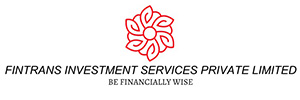1. What are tax free bonds?
These are bonds issued by various institutions to raise capital such as HUDCO, NHAI, IRFC or REC.
2. What tax free means?
- The income by way of interest on these bonds is fully exempt from income tax & shall not be part of total income.
- No deduction of tax at source (TDS) on interest irrespective of amount of interest or status of the investor.
- Wealth tax will not be applicable on these bonds.
Note: If these bonds are sold before maturity through stock exchanges, there will be a capital gain/loss depending upon the sale price.
3. Who can invest in tax free bonds?
- Individuals & HUF’s
- NRI’s
- Corporate etc.
4. How long would I require to be invested in these bonds?
Generally 10 to 15 years.
5. Do I require a Demat A/c to invest in these bonds?
Not Necessarily. If you have a DMAT Account you can easily hold online or else you can fill a physical application form and deposit it along with cheque and other supporting documents.
6. What about the yield from these bonds?
Tax free yields of 7.5% for 20 year bonds, which is equivalent to 10.72% taxable returns for someone who is in highest tax bracket.
7. What are the points to be kept in mind before investing?
- Liquidity: If you want to sell for immediate requirement through stock exchanges, you may have to sell at discount & incur losses.
- Tax free bonds are mainly used as capital protection device but in high inflation scenario, they will not be able to offset inflation.
- It is for the people who are not willing to take risk with their investments.
- Thus, it is not a wealth creation investment asset rather a wealth protection instrument.
